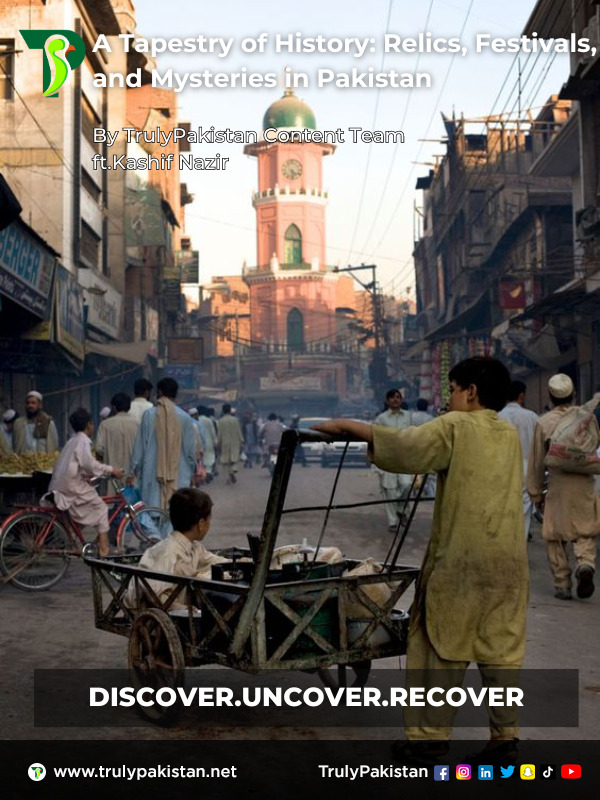Shah Allah Ditta: A Village Rooted in History
Nestled on the outskirts of Islamabad, Shah Allah Ditta stands as a living testament to the bygone eras of the Mughal Empire. This charming village, with a history spanning approximately 650 years, takes its name from a dervish of the same name. What makes Shah Allah Ditta unique is its ancient caves, which whisper echoes of long-lost civilizations and religions.
These caverns hold historical importance in an era when an ancient thoroughfare traversed this territory. This thoroughfare, subsequently celebrated as the Grand Trunk Road, assumed a central role as a critical lifeline connecting Kabul, Peshawar, Attock, Hassan Abdal, Rawalpindi, Lahore, and Delhi during the Mughal era.
Throughout the annals of time, individuals representing various faiths, spanning Hinduism, Buddhism, Jainism, Sikhism, and Islam, have regarded these caves with profound veneration. Prominent historical figures, among them Alexander the Great, Chandragupta Maurya, Ashoka the Great, Kautilya Chanakya, Hazrat Khawaja Moinuddin Chishti, Data Ali Hujwiri, Sher Shah Suri, and the illustrious Mughal Emperor Jahangir, are said to have journeyed through this region. They not only traversed these caves but also paused to quench their thirst with the cold spring water nearby.
Today, a spring, a pond, and a garden still exist near the Shah Allah Ditta Caves, providing a glimpse into the historical richness of this site. While some fruit trees have disappeared over time, banyan trees still grace the garden. The same spring that once quenched the thirst of historical figures was used to irrigate the lush greenery surrounding the caves.
During the Mughal era, a Sufi saint named Shah Allah Ditta found solace in this garden and was eventually interred here. This place, once associated with sadhus, monks, and jogis, has now become renowned as the sacred site of Sufi Shah Allah Ditta.


Shah Allah Ditta: A Village Rooted in History
Vesak Celebrations in Pakistan: Embracing Buddhism’s Legacy
In 2022, Pakistan celebrated Vesak, also known as Buddha Day, in the region of Taxila and its surrounding Gandhara area. Vesak is a significant festival commemorating the birth, attainment of Nirvana, and death of Gautama Buddha, the founder of Buddhism. The celebration in Taxila held great cultural and historical importance due to the presence of Buddhist places of worship.
Foreign Buddhist monks and ambassadors from various countries participated in the festival, marking a notable moment in Pakistan’s recognition of its Buddhist heritage. Most notably, a Pakistani Buddhist delegation from Sindh joined the festivities for the first time, highlighting the country’s commitment to inclusivity and the celebration of its diverse cultural tapestry.


Vesak Celebrations in Pakistan: Embracing Buddhism’s Legacy
Preservation and Rehabilitation: A Call to Action
The historical significance of the Shah Allah Ditta Caves and the broader region of Taxila cannot be overstated. These sites stand as a testament to the intricate interweaving of diverse religions, cultures, and civilizations that have imprinted their legacy upon this territory. Regrettably, the caves, once hallowed grounds, have regressed into a state of abandonment and dilapidation.
Today, these caves, which hold immense importance in Buddhism, paint a picture of desolation. They have become a refuge for drug addicts, and locals report eerie sounds emanating from the caves at night, accompanied by mysterious moving shadows. In light of this, pilgrims and advocates are calling for the urgent rehabilitation of the Shah Allah Ditta caves, drawing inspiration from the successful restoration of the Gurdwara at Kartarpura.
The preservation of Buddhist cultural heritage is not just a matter of historical significance; it also holds the potential to boost religious tourism and enhance Pakistan’s image on the global stage.
In conclusion, Pakistan’s Shah Allah Ditta, Vesak celebrations, and the ancient city of Taxila are gems that deserve recognition, preservation, and celebration. These historical and cultural treasures link to bygone eras, establishing a connection to the diverse heritage of this locale. It is our shared duty to protect and advance these extraordinary elements of Pakistan’s history, guaranteeing their enduring capacity to inspire forthcoming generations.

